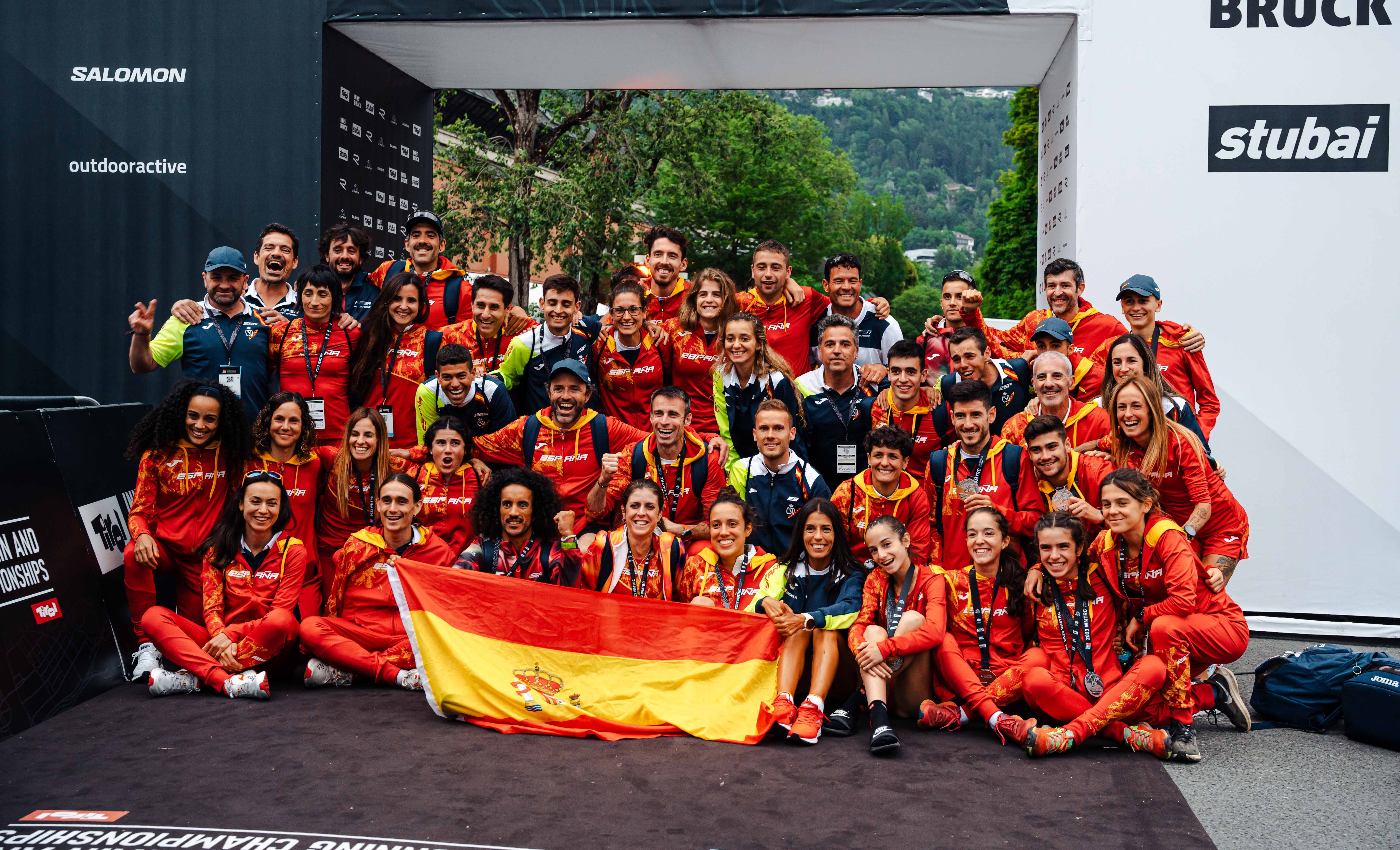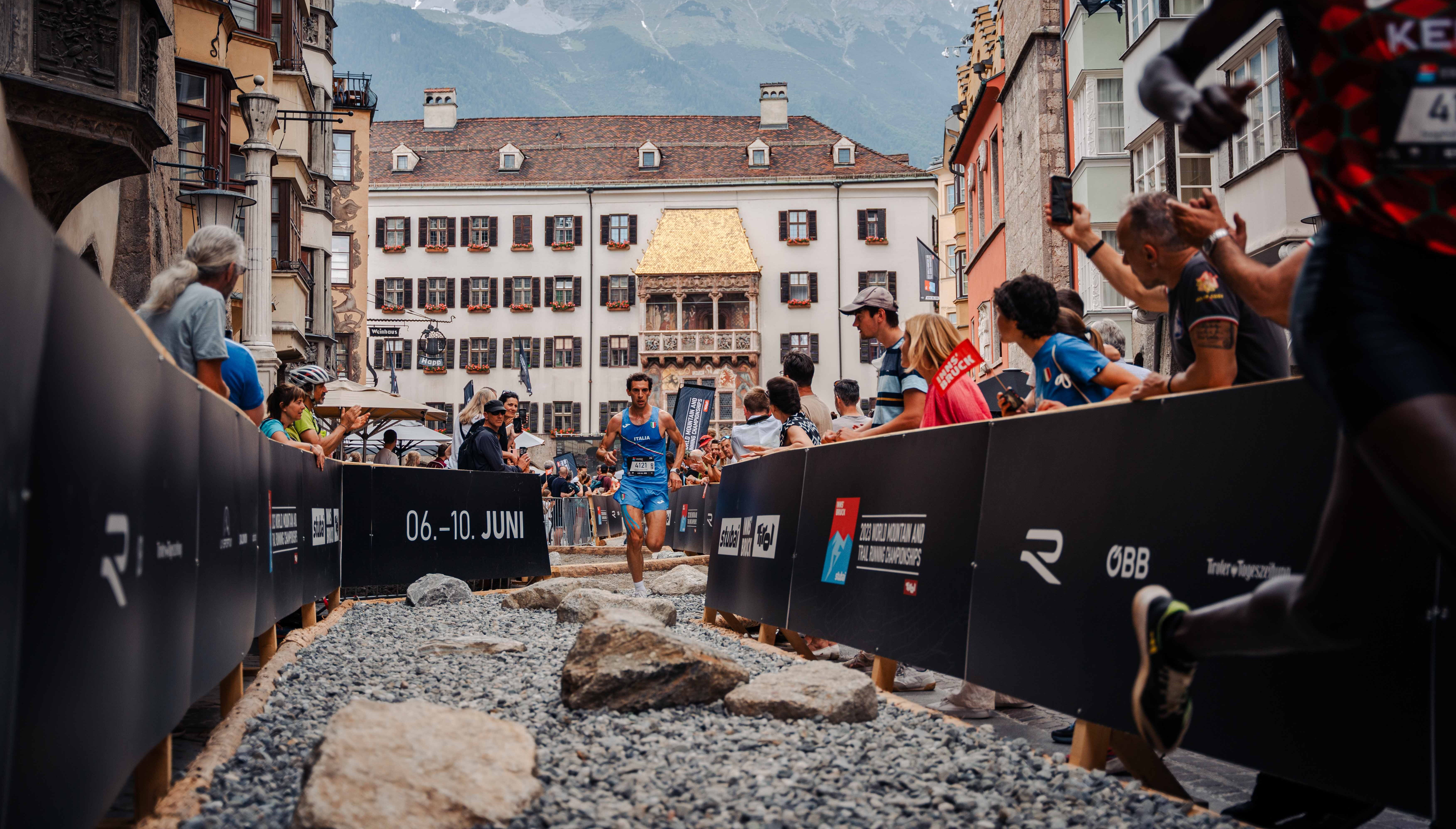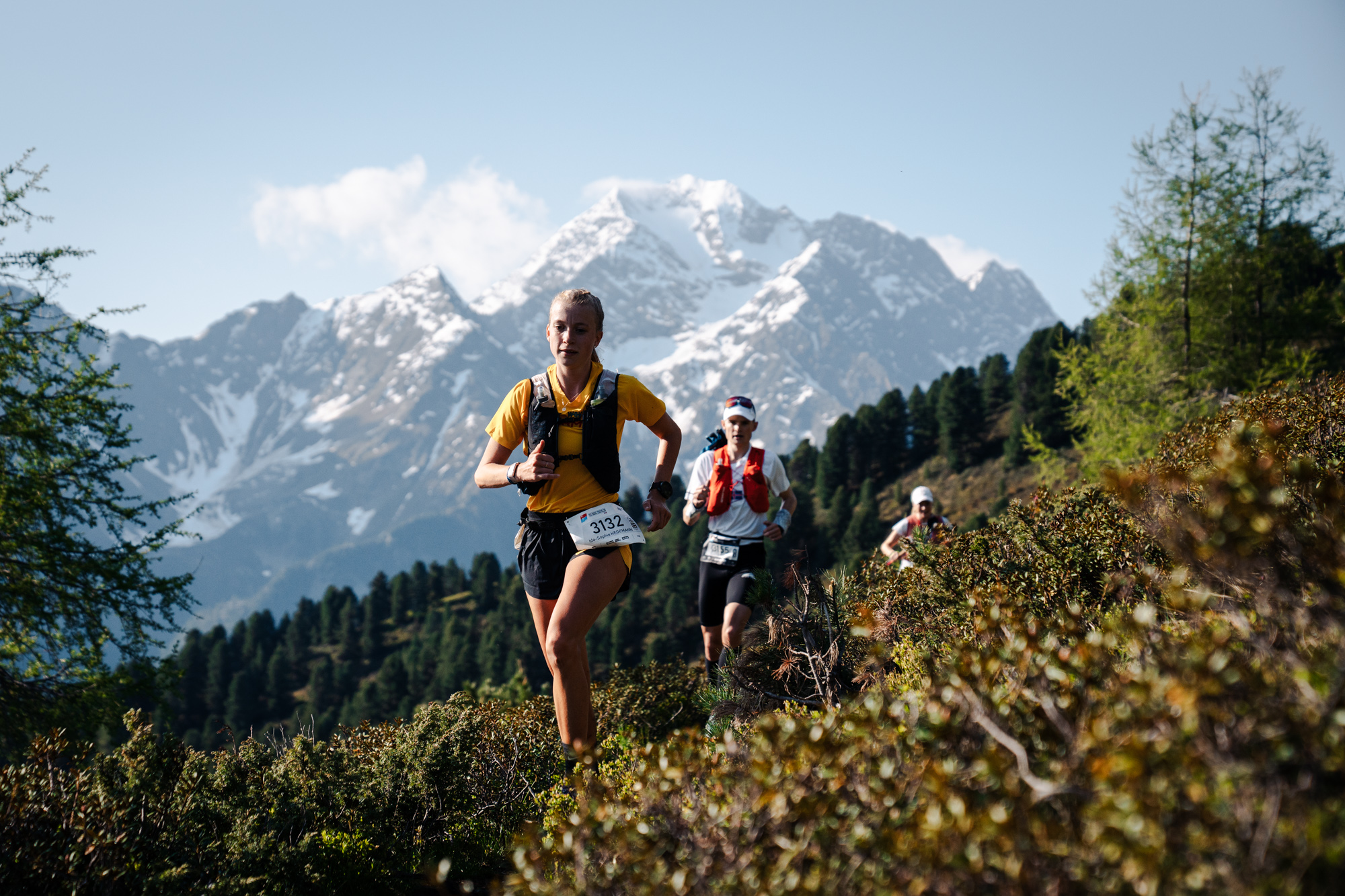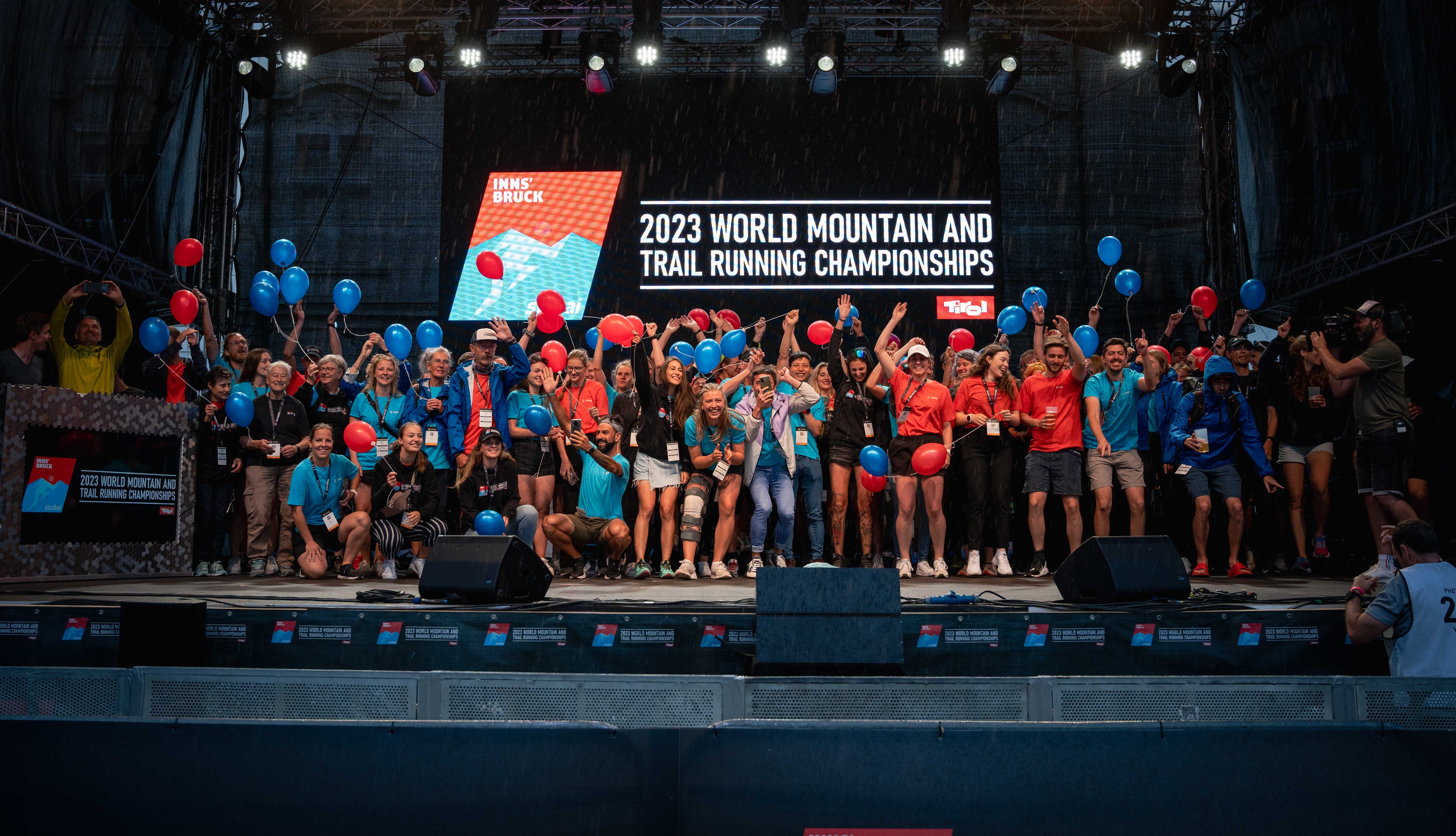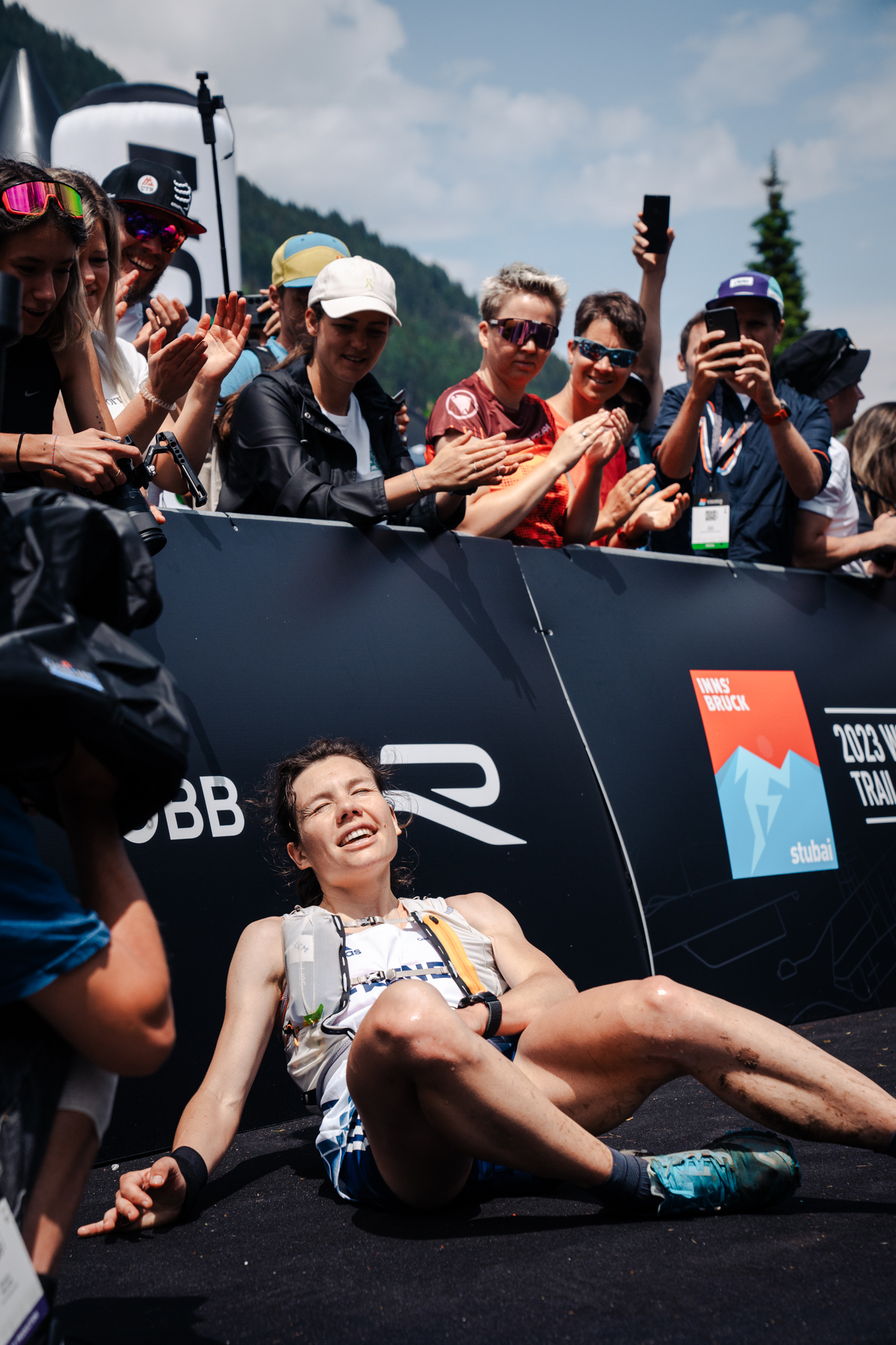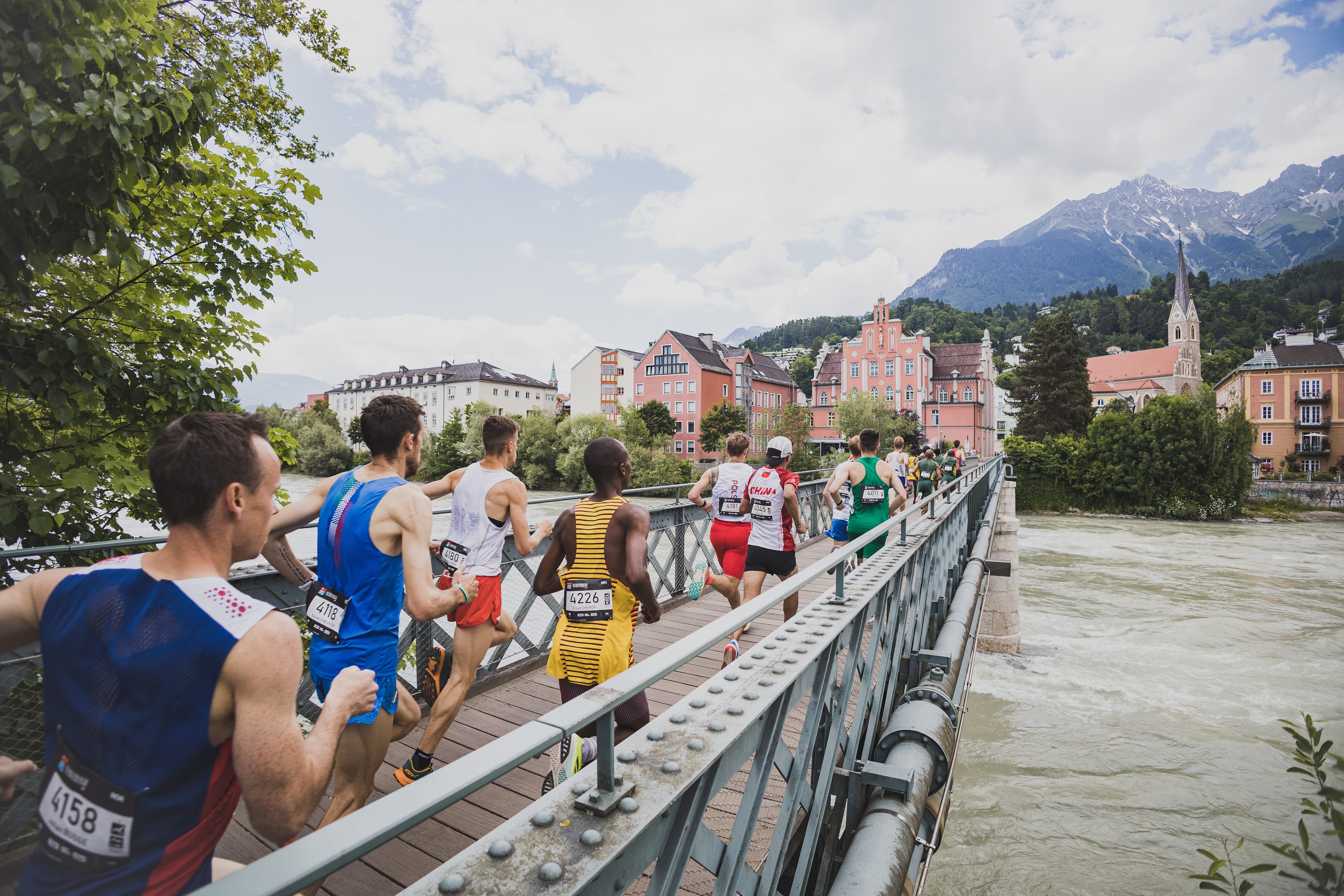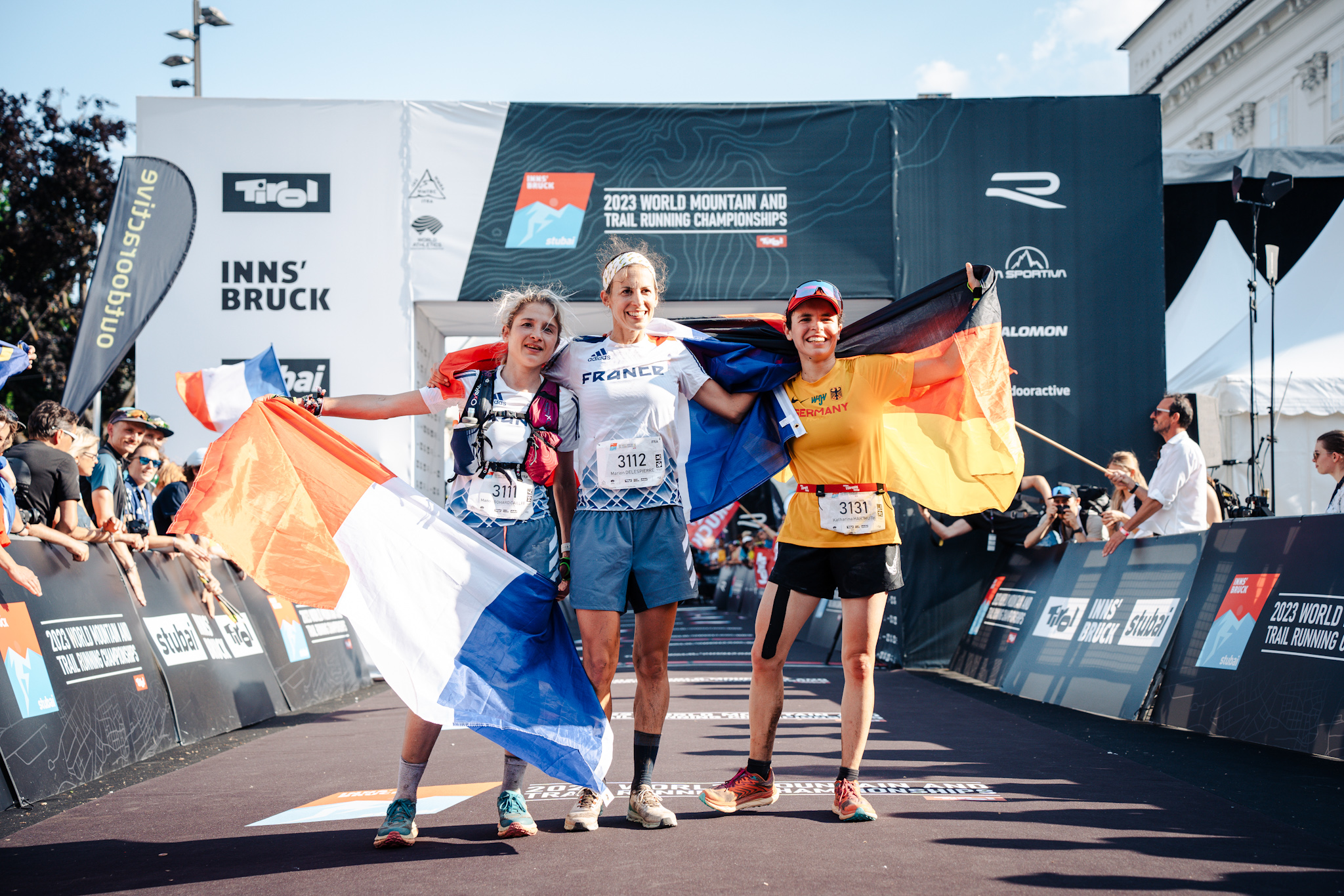Out of the cycle, into the cycle. For the event branding at the World Mountain and Trail Running Championships Innsbruck-Stubai 2023, the Tyrolean company Bellutti not only uses recycled fabrics but also plans on reusing the material again once the event is over.
Sustainability, a care for nature and its resources – those are the hot topics of our times, and they also take center stage at the World Mountain and Trail Running Championships 2023 in Innsbruck-Stubai. “It is a first for organizers of a major event to not only put a focus on sustainability but to also translate this focus into actions,” says Bernhard Hofer, member of the Bellutti Group management. The Tyrolean family business has been tasked with producing the event branding for the WMTRC, including recyclable banners with an overall area of 2,000 square meters. The first banners were mounted at the airport in Innsbruck in early March – and they have already had a “pre-existence”. The fabric is made of plastic waste that has been collected, chopped and processed before being turned into yarn that serves as the raw material for banners, tarps, roll-ups and other advertising products. “We print the WMTRC banners, collect them once the event is over and send them to ‘Verseidag’, our cooperation partner based in Krefeld, Germany, where the material is chopped up and processed once again to be turned into new fabrics,” Hofer says.
“This cooperation not only allows us to recycle the banners; we also play our part in questions of economic sustainability, and we cooperate with Tyrolean companies,” says WC organizer Alexander Pittl, “always according to our motto: Regional before national before international.” Pittl and Bellutti have been cooperating professionally for years and the company with offices in Innsbruck, Vienna and Klagenfurt has also been tasked with producing the banners for the “Innsbruck Alpine Trailrun Festival”.
By the way, commitment to sustainability does not come for free. In recent years, companies like Verseidag have only produced limited amounts of fabric, which has driven up the price. “Compared to traditionally produced products, we are paying a surcharge of approximately 70 percent,” says Bellutti CEO Hofer. And even though supply has increased again, there is still a price premium of 15 to 20 percent. “But together with the WMTRC we have decided to take a step towards sustainability. And because our partners are on board, we can offer a price that is similar to that of traditionally manufactured products.”
Unfortunately, it is not possible to just reprint banners, beach flags or tarps once they’ve been used. “It would be great if that were possible, but it is a technical challenge that cannot be solved as of yet,” explains Hofer. Instead, a small part of the event branding for Innsbruck-Stubai might be given a new lease on life, for example in the shape of bags made from banners.

